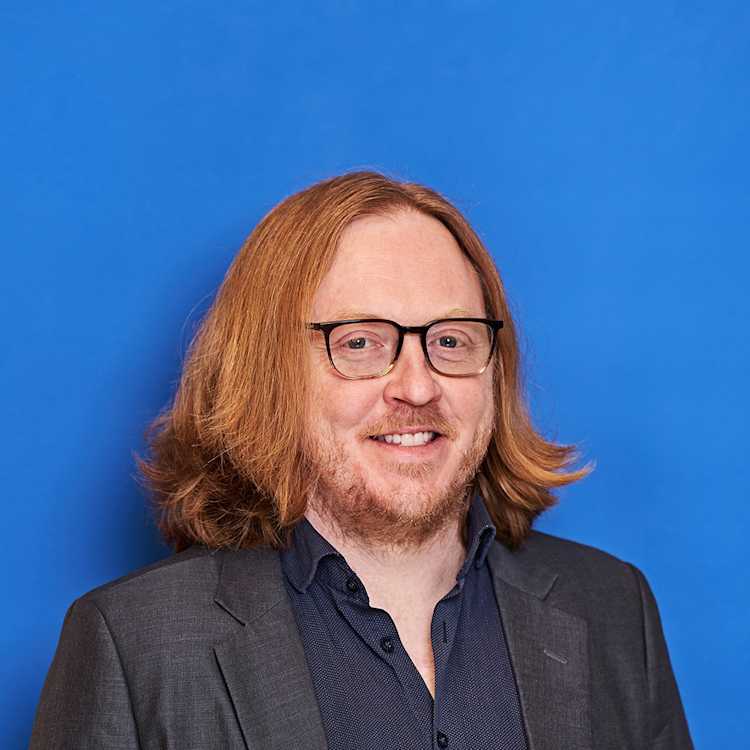- Startseite
- Presse
- Furthering Digital Sovereignty and Rights in Africa
Kurz notiert | 31.07.2025
Furthering Digital Sovereignty and Rights in Africa
From 8–11 July, the Stellenbosch Institute for Advanced Study (STIAS), South Africa, hosted a hybrid workshop on ‘Furthering Digital Sovereignty and Rights in Africa’, co-organised by Point Sud, the University of Cape Town and GIGA’s Digital Transformation Lab (DigiTraL).
Digital Sovereignty in Africa From 8–11 July, the Stellenbosch Institute for Advanced Study (STIAS), South Africa, hosted a hybrid workshop on ‘Digital Sovereignty in Africa’, co-organised by Point Sud, the University of Cape Town and GIGA’s Digital Transformation Lab (DigiTraL). The event brought together 30 experts from 11 African and 3 European nations to explore critical questions around digitalisation in Africa, including its impacts, regulation and geopolitical context. Each day comprised both panel discussions and excursions to relevant digital transformation sites around Cape Town. The first day began with a plenary session by Associate Professor Jess Auerbach Jahajeeah followed by four panels:
AI, Connectivity, and Development, chaired by Tevin Tafese
Geopolitical Aspects of Digital Sovereignty, chaired by Dr. Alena Thiel
Human Rights and Digital Freedoms, chaired by Dr. Maxine Rubin
Digital Colonialism: Big Tech, Algorithmic Bias and Cultural Preservation, chaired by Dr. Georges Macaire Eyenga
On the morning of the second day, there were two panels:
Labour Markets and Digital Impacts, chaired by Prof. Achim Kemmerling
Digital Skills and Education, chaired by Dr. Gift Mwonzora
Afterwards, participants set off for Teraco CT2 Data Centre – a top-tier digital infrastructure hub in Cape Town. There, they received a tour of the expansive data centre, gaining insights into the scale of its energy usage and the rate of its expansion driven by cloud and AI technology. The next morning it was back to panel sessions:
Current Data and AI Regulation in Africa, chaired by Andrew Crawford
Harmonisation of Digital Regulation in Africa, chaired by Mercy King‘ori
Later, the group again set off again, this time to the Graduate School of Business at the University of Cape Town, located in an old convict prison built in 1901. There, Jess Auerbach Jahajeeah presented insights into the African digital subsea cables and their only repair ship, the Léon Thévenin. The final day began with an excursion to Philippi Village – an inspiring community development project that integrates business, community and technology. Following a tour, the group sat down with local tech entrepreneurs to discuss their experience with digitalisation. On return to STIAS, participants reconvened to discuss some key takeaways from the workshop. These included:
The digital terrain is global in nature – capacity to control requires input into the regulatory and technological infrastructure.
Geopolitics and foreign influence complicate sovereignty – players such as Huawei or Starlink can have geopolitical aims that circumvent regulation
Legal and policy frameworks are fragmented and evolving – layers of territorialization exist (e.g. AU vs national) and incomplete sovereignty persists, for example, data centres and their international clients
Data is a national asset and governance is central to sovereignty – multi-layered policy making exists where African governments try to control data, but it is unclear what is needed to be sovereign.
The workshop provided a valuable forum for experts from Africa and Europe to meet and begin collaborating on research into digital sovereignty and furthering rights in the digital realm. Learn more about the event: https://digitalafrica.info
Fotogalerie









































